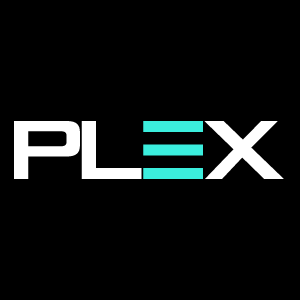Recent disruptions such as trade wars and COVID-19 have caused many professionals within supply chain management to rethink and redesign many core SCM practices. With longer lead times and port congestions, these professionals have had to embrace buffer stocks, reshoring and nearshoring, and more strategic outlooks on the cost of materials to ensure that orders can be completed.
As the complexity of today's supply chain grows, many within SCM are learning new strategies to address the shortcomings and glaring deficiencies that were taken for granted during a time when a far-flung supply chain could be counted on to run smoothly and on autopilot.
6 Steps to Improve Supply Chain Management
1. Analyze Your Supply Chain Strategy
Recent disruptions revealed many shortcomings in the old way of doing things. Faith in things like JIT and very long supply chain legs was shattered. Decision-makers are forced to evaluate their supply chain to determine if it is still a viable match for the new reality. Many companies saw production plummet or explode during the pandemic. Others added new service-related revenue streams or realigned from strictly B2B to include B2C elements. An evaluating strategy helps develop a supply chain that’s more resilient and flexible to include backup vendors, third-party partners, and other solutions.
2. Engage Your Suppliers
Like strategy evaluation, vendor evaluation is also critical. Companies should evaluate vendors to understand whether they can successfully navigate this complex environment. Monitoring and grading their performance can help determine if backup vendors or new vendors are required. Those that make the grade should be included in the decision-making process to develop stronger partnerships and contingencies.
3. Optimize Inventories
Due to size, cost, or staffing issues, many manufacturing companies have long relied on periodic inventory management. With the advent of end-to-end supply chain visibility afforded by connected factories and a connected supply chain, tracking inventory from vendor production through customer delivery offers companies tight optimization strategies. But as manufacturers adopt digitization of output to create a smart factory, perpetual inventory is faster, more accurate, and can reveal areas where process improvement is required.
4. Look at Supply Chain Costs Holistically
For many years, supply chain functions such as sourcing and purchasing looked at the lowest purchase cost above all else. But the lowest purchase cost may not result in the lowest overall cost. Lot size, packing formats, shipping volatility, and other variables mean that supply chain managers should look at the cost of raw materials holistically to include the total cost of ownership.
5. Adopt Best Practices
Even the best software and most well-defined strategies require discipline and the implementation of best practices. This evaluation may include training to focus planners and schedulers on the new directions. It may also include training for new software. Or, it can entail guiding those on the team accustomed to using intuition and gut feeling to embrace automated solutions that reduce errors. The process and procedures should grow out of the strategy to include industry best practices and those best for the company's business model.
6. Utilize Demand Planning Software
All of the above steps can be done manually. But with the wave of disruption and data growth that must be managed, relying on manual processes will result in minimal impact. Deploying demand planning software uses technology to leverage data collected at the factory level to deliver accurate demand forecasts. This will inform the entire supply chain and improve supply chain management.
Using software means unsiloed data can utilize advanced analytics to provide insights and prescribed actions. Plex DemandCaster understands that supply chains and their management strategies are changing. By using DemandCaster's demand and supply software, companies can use all the above steps to create end-to-end visibility. The software can easily integrate into a company's ERP, MRP, or MES system for even more powerful insights. By forecasting at any level of aggregation, demand trends can be identified to zero in on exact supply needs. Optimized inventory strategies can be layered in with automated purchasing and vendor tracking to uncover the total cost of ownership. And advanced analytics allow the use of robust "what-if" scenarios for any contingency.
Find out how DemandCaster can help improve your unique supply chain management strategy by reaching out to us today.
Related Articles
